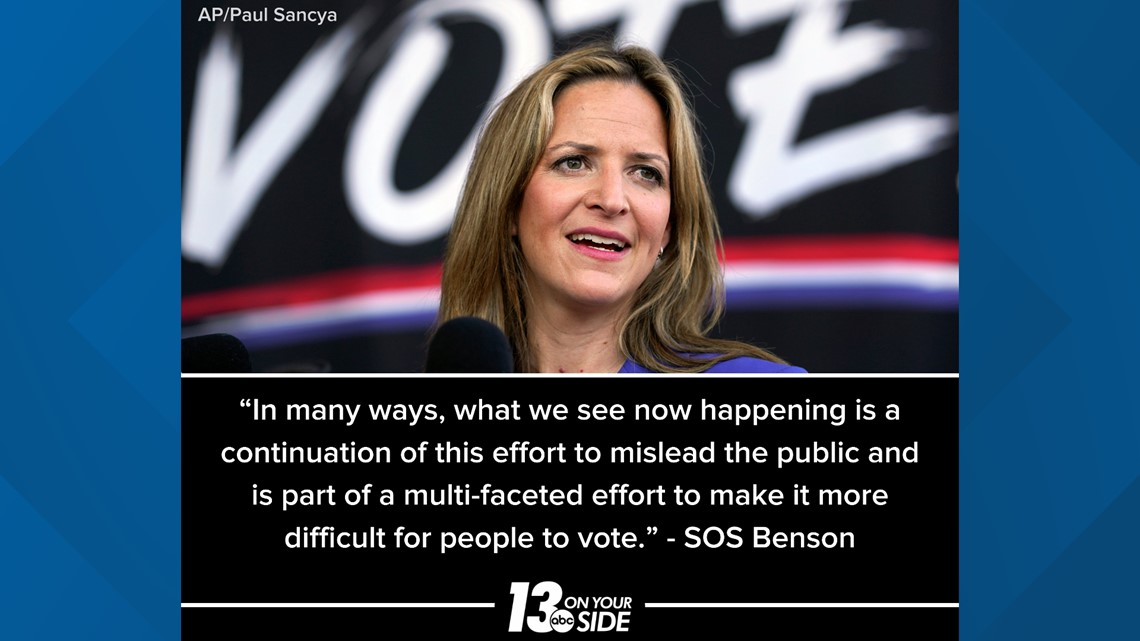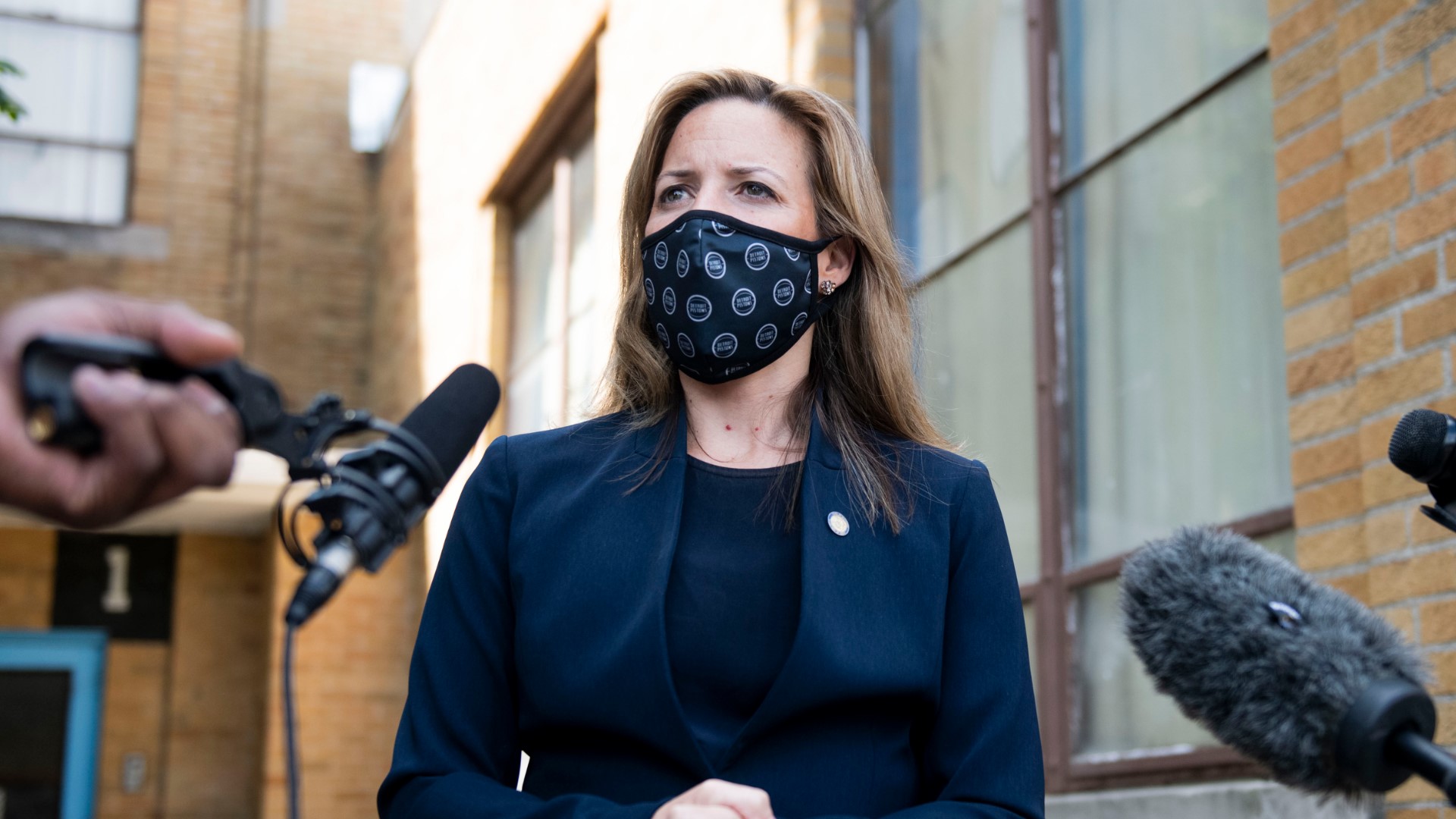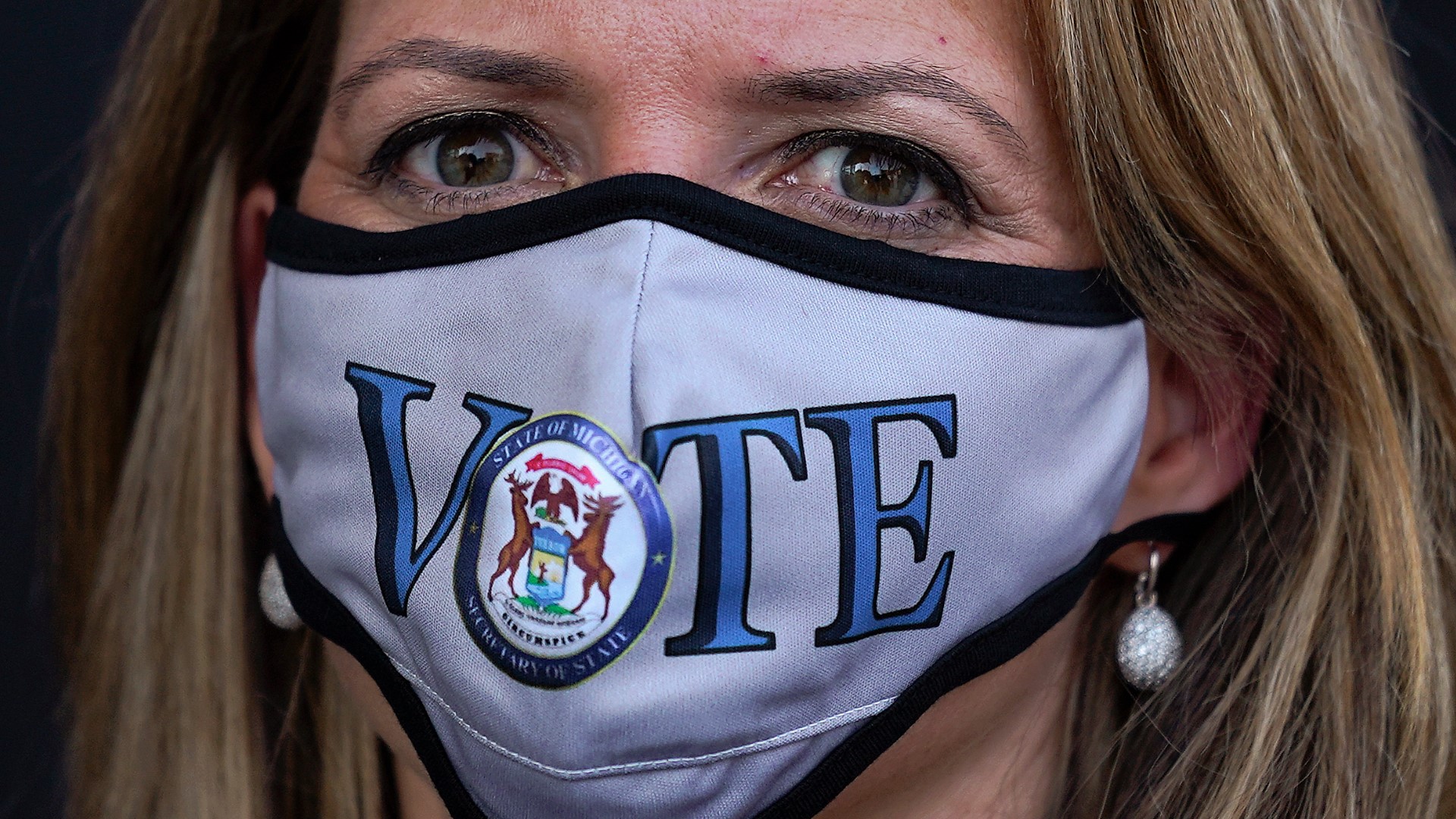LANSING, Mich. — State legislators in Michigan are working hard to advance their bills before the November election. Republicans say the previous election needs more scrutiny, but the Democrats say they are trying to pass laws that would make it much more difficult to vote. On Friday, Governor Gretchen Whitmer vetoed the sixth GOP-led restrictive voting bill in two weeks.
In an exclusive interview, Secretary of State Jocelyn Benson said she believes this legislation isn't actually in the name of "voter security."
Despite no proof of widespread voter fraud in the 2020 general election, 19 states have enacted voting legislation that would make it more difficult to vote, the Brennan Center for Justice at NYU Law says. The Michigan GOP is trying to become the 20th.
"What we're seeing now is not a reaction to voter fraud in 2020," Sec. Benson said. "It's a reaction to high voter turnout in 2020."
Benson has been fighting an uphill battle against the Republican-controlled Senate and House for years in the swing state. Benson said five and a half million in the state voted in the 2020 election, which is the highest amount of ballots returned ever.
With the state electing President Joe Biden and Senator Gary Peters instead of republican candidates, Benson said the GOP representatives are trying to regain their hold over the state. Since the last election, republicans continue to push legislation that democrats say is akin to voter suppression.
"At the heart of this, it's about lying to citizens, changing the law to make policies that aren't popular by the majority of the people and not be held accountable at the ballot box when they do that," she added.
The bills would make it much more difficult to vote, adding provisions like prohibiting someone without a government-issued ID from voting and eliminating types of buildings people can vote in, like living facilities or apartments. She said these bills would disproportionately impact voters who are Black, poor, young, immigrant or rural.


Benson's GOP colleagues are trying to persuade the public that the previous election was not a true reflection of the will of the people, she said.
"We're chasing lies," she said. "And then we're adding additional misleading factors on top of those lies to pass legislation or actual policies to make it harder to vote."
One of the major policies that Benson is against is Senate Bill 303, which would rewrite current legislation.
Currently, Michigan requires an ID to vote. People can vote in person without photo ID if they sign an affidavit, or a form, saying they do not have one with them at the polls. This applies to people who forget their driver's license, as well.
SB 303, would no longer allow this. If passed, the only way for people who don't have an ID to vote is to cast a provision vote. To make those provisional ballots count, the voter would have to appear at their clerk's office within six days of the election and present photo ID, and it still may not be counted.
That is not the only roadblock to SB 303. The bill adds a signature-matching provision for in-person voting. Untrained poll workers would have to compare signatures and the Bill gives them the ability to reject anyone for "not matching the digital signature with the paper one." Critics say this will cause longer wait times.
Education is one of the most important aspects of the jobs of those elected, and deliberately trying to cast doubt is a malicious way of trying to disenfranchise certain citizens, Benson added.
The new voting laws also imply that the previous election was fraudulent, she said.
Michigan has conducted more than 250 audits and found no fraud. Across the country, members of both parties have said claims of widespread voter fraud are baseless.
RAW INTERVIEW WITH SEC. BENSON (edited slightly for clarity):
►Make it easy to keep up to date with more stories like this. Download the 13 ON YOUR SIDE app now.
Have a news tip? Email news@13onyourside.com, visit our Facebook page or Twitter. Subscribe to our YouTube channel.


